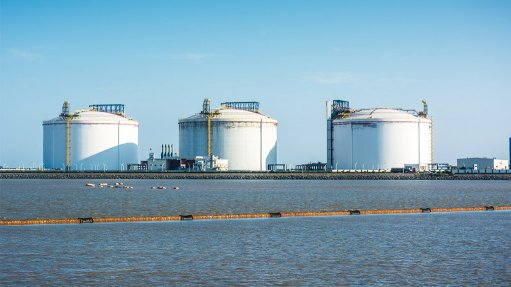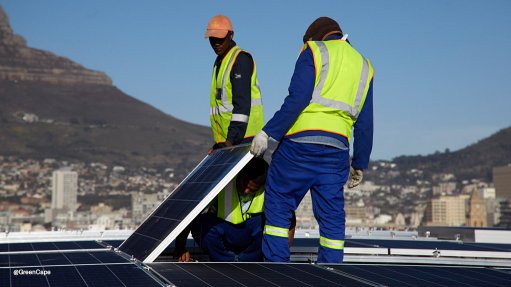Mwana shareholder, director take company to court
JOHANNESBURG (miningweekly.com) – The China International Mining Group Corporation (CIMGC) – a “substantial” shareholder in pan-African resources group Mwana – and Mwana nonexecutive director and CIMGC associate Yat Hoi Ning have filed a petition at the High Court of Justice, Companies Court in London, against the company and nonexecutive directors Stuart Morris and Johan Botha.
The petition alleged that the recent passing of Resolution 3 at the company’s annual general meeting on September 10, which related to the reappointment of Morris as a director of the company, was not validly passed.
Mwana said in a statement on Wednesday that, as previously announced, the votes of CIMGC and its associates were not counted in the poll and were deemed inadmissible because the votes, as cast, infringed the relationship agreement entered into with the company in April 2012.
“The company remains firmly of the view that Resolution 3 was validly passed, and has taken legal advice which supports this position. [We are] disappointed to have received the petition and that an amicable solution to CIMGC and Ning’s concerns could not have been reached through more customary channels.
“The company remains committed to attempting to work with the petitioners to achieve a mutually acceptable resolution to their complaints, but [we] will defend [our] position vigorously in court proceedings if required,” it countered.
An initial directions hearing had been scheduled at the Companies Court for January 7.
Mwana, meanwhile, revealed in a results statement for the six months ended September 30 on Wednesday that, while production at its nickel and gold operations was higher in the period under review, the six months were “not without its challenges”.
FREDA REBECCA
The group sold 30 058 oz of gold from the Zimbabwe-based Freda Rebecca mine over the six months, while the tons mined and milled increased by 10.5% and 11.6% respectively compared with the first half of the prior year.
Revenue generated by the gold miner declined by 11.6% owing to a 6.8% drop in ounces sold and a 5.1% fall in the average gold price an ounce to $1 283.
Lower gold production during the half-year contributed to a 9.2% increase in cash costs to $969/oz and a 5.7% increase in the all-in sustaining costs (AISC) to $1 161/oz.
Meanwhile, technical challenges associated with power failures at two absorption tanks affected operations for a few weeks over the period.
“The group is continuing to focus on reducing all-in sustaining costs through production efficiency initiatives and an increase in volumes produced to ensure that margins can be maintained in a declining gold price environment,” Mwana outlined.
Mwana CEO Kalaa Mpinga added that consistent throughput was now being achieved at Freda Rebecca, which was helping to contain costs and ensure that the mine remained profitable should gold prices retreat further.
BINDURA NICKEL CORPORATION
A combination of greater mill throughput and higher head grades lifted the production of nickel-in-concentrate from the company’s Bindura Nickel Corporation (BNC), in Zimbabwe, to 3 879 t from 2 191 t in the first half of 2014.
However, Mwana conceded that the figures were not strictly comparable, as the first six months of 2014 covered the first-six-month period of continuous operations since the reopening of the subsidiary’s Trojan mine.
During the half-year, refurbishment of some of the mining equipment was largely completed.
This refurbishing involved the withdrawal of trackless equipment from the workings and its return had contributed to the currently higher milling and mining rates.
“The result is that the second quarter’s operations and costs offer a better indication of what might be expected in future periods as opposed to the average for the first half of 2015,” Mwana noted.
The second quarter’s cash costs rose by 1% to $13 900/t owing to the continuation of the mobile plant refurbishment programme and an increase in the nickel price, while AISC were 8% lower, at $14 566/t.
“The decision to restart Bindura’s smelter at a total capital cost of $26.5-million has been central to our planning for sustainable and profitable nickel production,” Mpinga outlined.
BINDURA SMELTER
The plan to implement the modifications required to restart the Bindura smelter plant included limited modifications to the furnace and the introduction of furnace off-gas cleaning prior to the electrostatic precipitator (ESP) over the six months.
This, according to Mwana, allowed better control of freeboard pressure, an improvement in building hygiene, a six-month rebuild of the ESP, minor modifications to the feed system to improve furnace operation and safety, and electrical and control system upgrades to ensure safe and efficient operations.
The 12-month accelerated restart plan was independently reviewed and had begun with Trojan concentrates alone using 60% of the smelter capacity.
“Therefore, third-party concentrates to fill the rest of the 60 000 t nameplate capacity continues to be sought,” it said.
Following the period end, the company announced that its subsidiary BNC was seeking to raise a $20-million bond to contribute to the smelter restart.
ZANI-KODO
District-scale exploration at Mwana’s Zani-Kodo project, in the Democratic Republic of the Congo (DRC), was, meanwhile, continuing.
While this had delivered some interesting mineralisation indications, no exploratory drilling was carried out during the first half of the year, nor was any
planned for the immediate future.
“As a result, there have been no additions to the current 2.97-million-ounce gold resource estimate,” the group stated.
KATANGA COPPER
Elsewhere in the DRC, the 2014 exploration programme at the Katanga copper project remained in progress, with nine drill rigs operating on five priority targets.
Resolution ground magnetic surveys and trenching had been conducted for other priority targets with the objective of advancing them to drill targets for 2015.
DIAMONDS
During the first half of 2015, 56 617 ct were recovered from the company’s Klipspringer mine, in South Africa, and 39 113 ct were sold in New York and Amsterdam at an average price of $20.14/ct.
Some 17 024 ct were placed in stock for future sale.
Together with its joint venture (JV) partner, Klipspringer, it was aiming to increase the tailings operation’s monthly slimes throughput from 18 000 t to 21 000 t by the end of the financial year.
Mwana Africa also had minority stakes in a number of other pre-resource-stage diamond projects, including a 20% interest in Société Minière de Bakwanga, in the DRC, and an 18% interest in the Camafuca project, in Angola.
The prospecting licence for the BK16 project, in Botswana, in which the company had an interest of 55%, was not renewed during the period.
FINANCIAL REVIEW
Looking to the company’s balance sheet, the group reported revenue of $84.9-million for the period, with Freda Rebecca generating revenue of $38.5-million from the sale of 30 058 oz of gold.
BNC generated revenue of $46.4-million from the sale of 3 879 t of nickel-in-concentrate over the period.
Mwana generated a gross profit of $34.1-million for the period; $10.6-million
at Freda Rebecca and $23.4-million at BNC.
Operating costs were $73-million owing to tons sold by BNC increasing to
1 678 t and an increase in average cost of sales for BNC and Freda Rebecca.
The group, meanwhile, reported a profit before tax of $11.9-million, while fully diluted earnings a share narrowed from 0.45c in the first half of 2014 to 0.37c in the period under review.
“Earnings a share have decreased, despite the 3% increase in profit versus the comparable period last year owing to an increase of company ordinary shares in issue,” Mwana explained.
The group generated cash flow of $5.8-million from operations during the
period, which was offset by $1.4-million for expenses incurred in relation to the interest in the diamond recovery JV and additional cash flows generated by other Mwana entities.
At the end of the period, the group held cash balances of $6.9-million.
Comments
Announcements
What's On
Subscribe to improve your user experience...
Option 1 (equivalent of R125 a month):
Receive a weekly copy of Creamer Media's Engineering News & Mining Weekly magazine
(print copy for those in South Africa and e-magazine for those outside of South Africa)
Receive daily email newsletters
Access to full search results
Access archive of magazine back copies
Access to Projects in Progress
Access to ONE Research Report of your choice in PDF format
Option 2 (equivalent of R375 a month):
All benefits from Option 1
PLUS
Access to Creamer Media's Research Channel Africa for ALL Research Reports, in PDF format, on various industrial and mining sectors
including Electricity; Water; Energy Transition; Hydrogen; Roads, Rail and Ports; Coal; Gold; Platinum; Battery Metals; etc.
Already a subscriber?
Forgotten your password?
Receive weekly copy of Creamer Media's Engineering News & Mining Weekly magazine (print copy for those in South Africa and e-magazine for those outside of South Africa)
➕
Recieve daily email newsletters
➕
Access to full search results
➕
Access archive of magazine back copies
➕
Access to Projects in Progress
➕
Access to ONE Research Report of your choice in PDF format
RESEARCH CHANNEL AFRICA
R4500 (equivalent of R375 a month)
SUBSCRIBEAll benefits from Option 1
➕
Access to Creamer Media's Research Channel Africa for ALL Research Reports on various industrial and mining sectors, in PDF format, including on:
Electricity
➕
Water
➕
Energy Transition
➕
Hydrogen
➕
Roads, Rail and Ports
➕
Coal
➕
Gold
➕
Platinum
➕
Battery Metals
➕
etc.
Receive all benefits from Option 1 or Option 2 delivered to numerous people at your company
➕
Multiple User names and Passwords for simultaneous log-ins
➕
Intranet integration access to all in your organisation


















